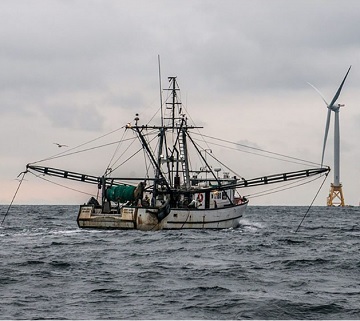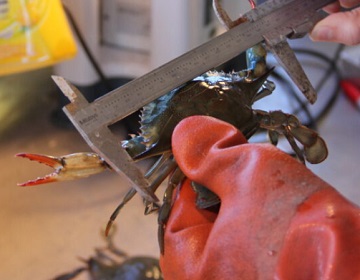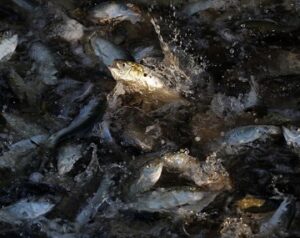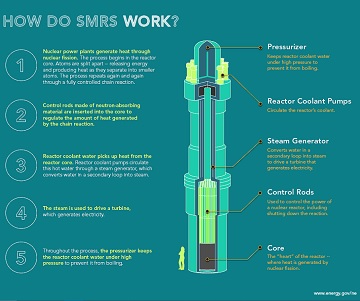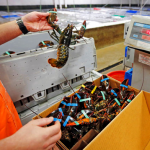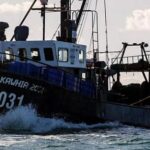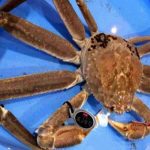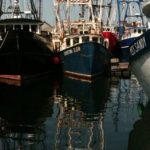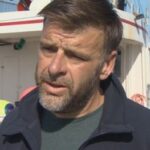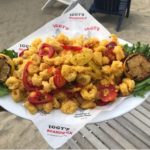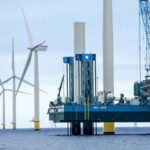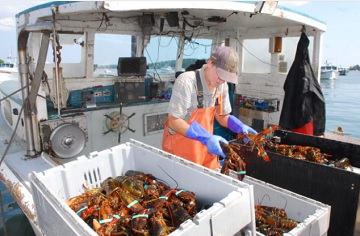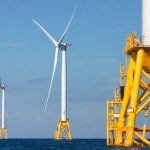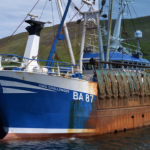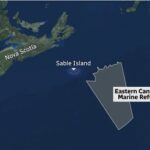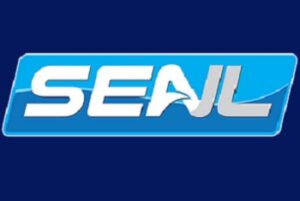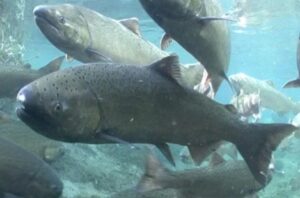The controversial menhaden fleet that supplies Omega Proteins’ Reedville plant is promising to limit areas in Chesapeake Bay where it will set its nets and catches fish. In a memorandum of understanding with the state, Ocean Harvesters said it wants to limit potential areas of conflict with other users of the Bay. Conservationists and recreational fishermen had pushed for limits, with some calling for an outright ban on catching menhaden in the Bay, after two spills of dead menhaden last year washed ashore. >click to read< 08:01
Tag Archives: Virginia
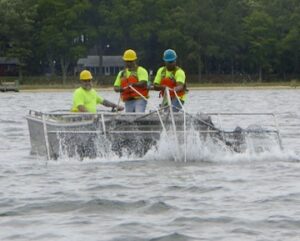
Omega Protein and Fishing Partner Ocean Harvesters Successfully Test Fish Spill Response Vessel
Ocean Harvesters, the exclusive fishing partner of Omega Protein, is continuing its commitment to responsible stewardship of the Chesapeake Bay with the deployment of a new response team and recovery vessel to more effectively respond to rare incidents like net tears and fish spills. As part of this effort, Ocean Harvesters, in cooperation with the Virginia Marine Resources Commission (VMRC), has successfully tested a skimmer vessel, which will arrive at the scene of a net tear and work to recover spilled fish from the surface that threaten shorelines. This vessel will begin operating in the Bay with this upcoming fishing season. photos, video, >click to read< 09:57
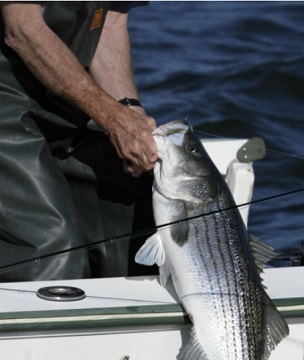
Eastern Shore fisherman pleads guilty to overharvesting, trafficking of striped bass
A commercial fisherman from the Eastern Shore pleaded guilty Monday to violating a federal law by selling striped bass he caught in Virginia waterways in excess of his quota over the course of three years. Keith James Martin, 52, of Saxis, was legally allowed to harvest 4,010 pounds of striped bass per year from 2018 to 2020 under Virginia code, according to a news release from the U.S. attorney’s office for the Eastern District of Virginia. However, in 2018, Martin sold more than 6,700 pounds of striped bass to a Maryland seafood business and more than 4,300 pounds to the same business in 2019, according to the statement of facts filed with the plea agreement. >click to read< 08:33
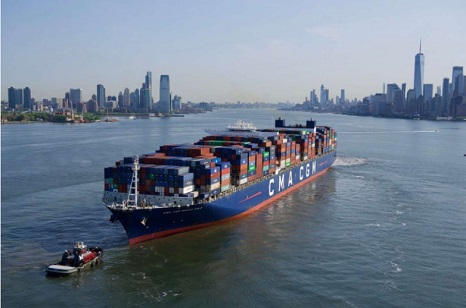
Why are the whales dying? Sea mammal deaths hit record in New York and New Jersey
As whales wash up along East Coast shores at alarming rates, researchers dissect decomposing carcasses, logging whether ship strikes or fishing gear factored into each demise, while some beachgoers wonder if their favorite coastline will be next. At least 14 humpbacks and minke whales have been found dead thus far in 2023 in waters off New York and New Jersey — up from 9 in the entirety of last year. The most recent deaths were two humpbacks, whose corpses were spotted May 31, in Raritan Bay off Keansburg, New Jersey, and Wainscott on Long Island. >click to read< 11:52
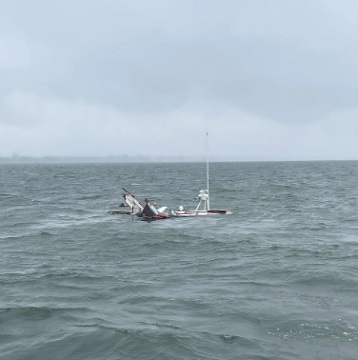
Coast Guard responds to boat collision in James River, Virginia
The Coast Guard responded to a vessel collision Tuesday morning near the Newport News Small Boat Harbor. The Coast Guard was alerted at 7:50 a.m. that the pilot boat, Swift, and a 38-foot deadrise fishing vessel, F/V Miss Heather, collided near the Newport News Small Boat Harbor. The pilot aboard the Swift rescued two fishermen from the Miss Heather and brought them aboard the pilot boat as the fishing vessel rapidly took on water. >click to read the report< 14:50
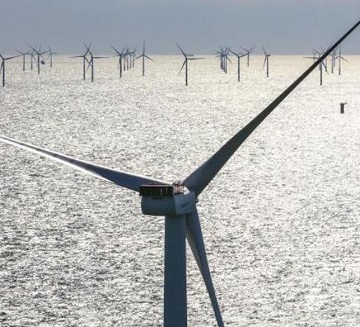
North Carolina Joins Effort to Establish Regional Fisheries Mitigation for Offshore Wind Development
Governor Roy Cooper announced that North Carolina has joined other Atlantic Coast states involved with the Special Initiative on Offshore Wind on a coordinated project to support fisheries mitigation in the development of offshore wind along the East Coast. “It is important that we work to meet our state’s offshore wind energy goals while still protecting our marine fishery industry,” said Governor Cooper. “We are committed to collaborating with other states in this effort to make sure we achieve both goals.” Currently, the Initiative is focused on establishing a framework to compensate commercial and for-hire fishermen in the event of economic impact related to offshore wind development. The goal is to develop a regional approach for administration of any financial compensation paid by developers. Economic impacts from coastal fishing in North Carolina top $4.5 billion annually. >click to read< 08:26
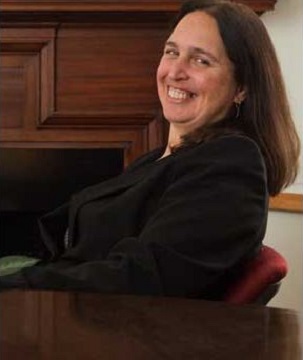
First Lawsuit Over Whales and Wind Dismissed
A federal district judge in Massachusetts has rejected an effort to stop an offshore wind project near Nantucket Island on the basis of danger to whales, apparently the first court test of similar claims being raised against wind turbine proposals along the U.S. eastern seaboard, including here in Virginia. On May 17, U.S. District Judge Indira Talwani granted a motion for summary judgement to the federal agency that approved the Vineyard Wind One project. With a planned 84 turbines, the project is about half the size of Dominion Energy Virginia’s planned project off Virginia Beach. Both are just the first phases of larger planned buildouts. The same judge is hearing the other cases, with the two from fishing interests now combined. >click to read< 09:47

Feds play shell game with wind / whale impacts
NOAA is taking public comments on a massive proposal to harass large numbers of whales and other marine mammals by building a huge offshore wind complex. There is supposed to be an Environmental Impact Statement (EIS) for the proposed harassment, but it is not there with the proposal. We are told it is elsewhere but after searching we find that it simply does not exist. Like a shell game where the pea has been palmed, there is nothing to be found. First the bureaucratic background. The wind project is Dominion’s 2,600 MW offshore Virginia facility, which if built would be the world’s biggest. NOAA’s National Marine Fisheries Service (NMFS) is proposing to issue a five year harassment authorization for the construction of this monster. >click to read< 07:36
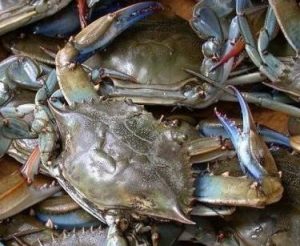
Chesapeake Bay blue crab population improves after all-time low in 2022
This year, the number of spawning age female crabs and adult male crabs both increased substantially, but the number of juvenile crabs only increased by about 15%, according to the winter dredge survey, which is completed from December to March by the Maryland Department of Natural Resources and the Virginia Institute of Marine Science. “We are encouraged by the increases in adult crab abundance, but we need to be vigilant given the ongoing low recruitment numbers,” said Lynn Fegley, acting director for Maryland Department of Natural Resources’s Fishing and Boating Services, in a statement. “We haven’t seen a strong year class since 2019 despite maintaining the spawning stock at a level capable of producing one.” Video, >click to read< 12:56
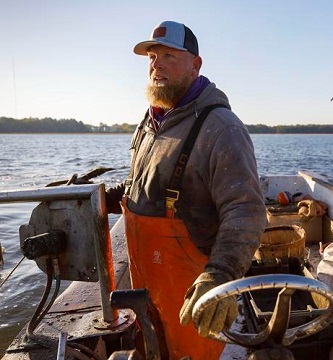
Lowcountry is the last ‘wild west’ for blue crabs. Crabbers call for change.
In February, David Richardson drove to Columbia from his home in Charleston to speak to a room of state senators about his life as a South Carolina crabber, which, at the moment, “is kind of miserable.” But it wasn’t always miserable. Which is why he drove two hours to the Statehouse, a place he had never been nor expected to visit. The crabber thought about wearing a Hawaiian shirt, then thought twice: “I wore a suit, thank God.” As crab numbers fell over the past decade across the Eastern Seaboard, South Carolina did nothing, but North Carolina increased its management actions. It designated some areas as “no-fishing” spawning sanctuaries. And Georgia decided to limit the number of commercial crabbing licenses to under 100. Photos, >click to read< 08:39
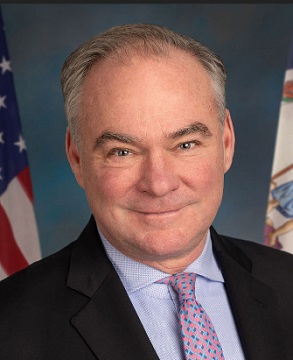
Wind energy developer funneled cash to Dem senator pushing offshore wind
A multibillion-dollar energy developer has wired tens of thousands of dollars to Democratic Virginia Sen. Tim Kaine’s campaign in recent years while aggressively pushing a massive offshore wind project. The Richmond, Virginia-based Dominion Energy’s political action committee (PAC) has funneled $23,000 to Kaine for Virginia since 2011, with the latest, a $1,500 contribution, coming in February. In that same time span, Dominion Energy has given another $44,500 to Common Ground PAC, the leadership PAC affiliated with and chaired by Kaine. Since 2021, Dominion Energy executives led by CEO Robert Blue and Senior Vice President William Murray have donated $19,600 to Kaine’s campaign. At the same time, lobbyists who Dominion has contracted made payments totaling $3,000 to the campaign. >click to read< 08:03
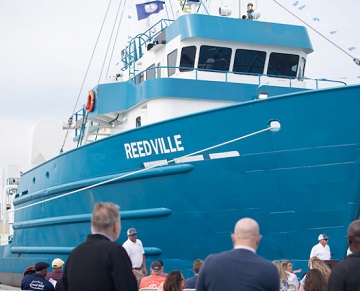
Omega Protein Fishing Partner Christens Two New Vessels, Reedville and Little River
Ocean Harvesters, Omega Protein’s fishing partner, kicked off the 2023 fishing season by christening two new vessels for the Atlantic menhaden fishery. The F/V Reedville and the F/V Little River are the two latest additions to the fleet of Ocean Harvesters, which fishes for menhaden in Virginia and operates a long-term supply contract with Omega Protein. The vessels were christened on Saturday April 22 in a ceremony at Omega Protein’s facility in Reedville, Virginia. Video, photos, >click to read< 12:44
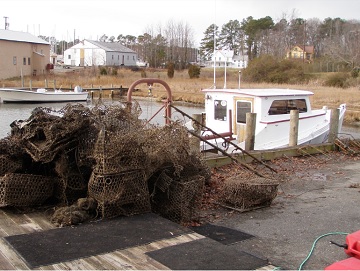
VIMS to lead national program for managing derelict fishing gear
The National Oceanic and Atmospheric Administration has recommended William & Mary’s Virginia Institute of Marine Science as home base for a new national program focused on protecting U.S. coastal waters from derelict fishing gear. The $8 million provided by NOAA to implement the four-year program is the largest single grant award in VIMS’ 83-year history. Many of these dollars will be passed on to program partners through an annual grant competition. Formally known as the Nationwide Fishing TRAP Program — “TRAP” for Trap Removal, Assessment & Prevention — the effort includes funding for commercial and tribal fishers to remove derelict pots from Virginia’s waters. >click to read< 17:46
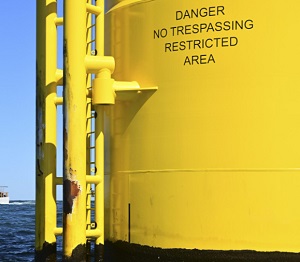
US Navy Sounds Alarm Over Biden’s Offshore Wind Plans
The US Navy and Pentagon are sounding alarms over Biden administration plans to advance offshore wind projects along the central Atlantic US coast, warning that almost all of the new terrain eyed for development conflicts with military operations. Maps shared with industry stakeholders and seen by Bloomberg News show vast red areas that the Navy and Air Force have deemed “highly problematic,” covering prime real estate the Interior Department last year earmarked for leasing off the coasts of North Carolina, Virginia, Maryland and Delaware. The Defense Department’s concerns, which come on top of other conflicts identified by the US Coast Guard, have spooked renewable power developers and US East Coast states counting on mid-Atlantic wind farms to meet clean energy and climate goals. >click to read< 11:18
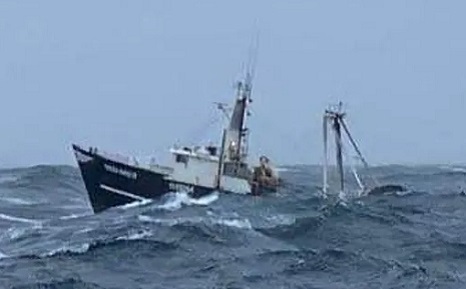
I’m a fishing boat captain. Green energy companies, government want to put me out of business
Offshore wind energy might be killing whales, but there’s no question it’s killing American fishermen. I’ve been a fishing boat captain for over 20 years. I live on an island in Maine and sail out of New Bedford, Mass. My brothers and cousins are lobstermen. Fishing is the trade our family has plied for generations. We’re proud to practice the founding craft of our nation. When colonists first settled New England, they looked to the sea to sustain them. And so it is for our coastal communities four  centuries on. But for how much longer? Federal regulators and foreign green energy companies seem determined to drive us off the water and lay waste to the communities that depend on fishing. If their well-laid development plans succeed, biblical calamity will follow for working people across New England. Consider the mechanics of fishing. Photos, Video, >click to read< 10:06
centuries on. But for how much longer? Federal regulators and foreign green energy companies seem determined to drive us off the water and lay waste to the communities that depend on fishing. If their well-laid development plans succeed, biblical calamity will follow for working people across New England. Consider the mechanics of fishing. Photos, Video, >click to read< 10:06
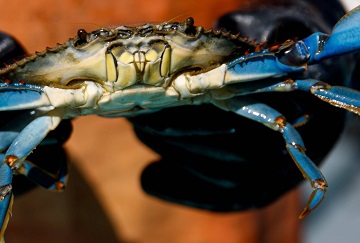
Maryland, Virginia race to save dwindling commercial fisheries in the Chesapeake Bay
Alarmed by plummeting stocks of commercial fisheries in the Chesapeake Bay, officials in Maryland and Virginia are scrambling to control invasive fish species that are causing at least part of the problem. On Thursday, Gov. Wes Moore asked the federal government to carry out an evaluation to determine if the situation amounts to a declaration of a “commercial fishery disaster,” which would qualify the state for federal assistance. In a letter to Secretary of Commerce Gina Raimondo, Moore said the state is increasingly concerned about the explosive growth of invasive fish species in the Chesapeake Bay, including blue catfish, flathead catfish and snakehead. >click to read< 09:11
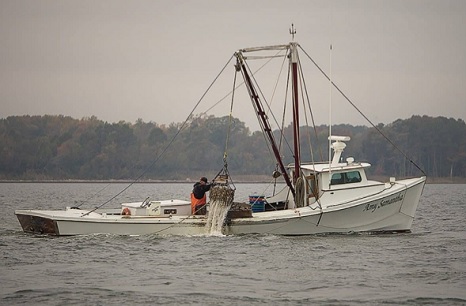
Extended Va. Oyster Season Poised for Largest Harvest In 35 Years
With Virginia watermen enjoying their most bountiful wild harvest in 35 years, state fisheries managers have agreed to extend the season by two weeks. The Virginia Marine Resources Commission (VMRC) voted unanimously to allow wild oyster harvests for an extra 10 working days in areas where commission staff judged the bivalve populations abundant enough to withstand additional fishing pressure. “We’ve had a great oyster season, and it’s still going strong,” said J.C. Hudgins, head of the Virginia Waterman’s Association. “It’s been good everywhere we go.” Looking back, it’s quite a turnaround. >click to read< 07:36
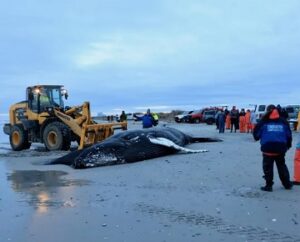
2 whales found dead along Atlantic Coast were likely hit by boats, NOAA says.
Necropsies on two whales found dead along the Atlantic coast this week revealed that both marine mammals showed evidence of vessel strikes. Both whales, a critically endangered North Atlantic right whale and a humpback, were already beginning to decompose, but preliminary results show internal injuries consistent with the blunt force trauma of a vessel strike, the National Oceanic and Atmospheric Administration said Tuesday. The deaths are among a flurry of 21 whale deaths along the length of the Atlantic coast since Dec. 3. >click to read< 09:20
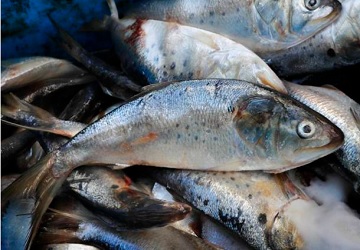
Virginia: General Assembly bill could help end debate of whether menhaden are overfished in the Chesapeake Bay
The state Senate passed a bill Wednesday to fund a study by the Virginia Institute of Marine Science to calculate menhaden populations in the state. The study would survey the number of fish over 18 months and the amount of bycatch, the unintended fish caught in the nets. The menhaden population along the Atlantic coast is considered healthy according to the Atlantic States Marine Fishery Commission, but groups such as the Virginia Saltwater Sport Fishing Association and the Chesapeake Bay Foundation want to know the numbers in the bay. Other fish, including striped bass, dine on menhaden. >click to read< 11:38
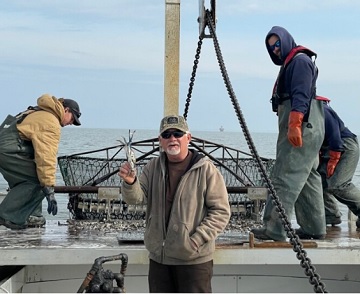
Here’s why workers are digging Chesapeake Bay blue crabs out of the mud this month
On a recent gray January morning, they were working a section of the upper Chesapeake Bay off Rock Hall on the Eastern Shore. Capt. Roger Morris, a Dorchester County waterman who works under contract with the state’s department of natural resources, dropped a Virginia dredge off the stern of F/V Mydra Ann, his 45-foot Bay workboat, and let the attached chain pay out until the dredge hit bottom 20-some feet below, jolting the boat. A Virginia dredge refers to an eight foot wide piece of equipment with an attached net that gets dropped into the water to dredge for crabs. Morris eased the throttle forward and dragged the dredge through the mud for one minute at three knots, then hauled it back up, pausing to rinse the mud out before bringing it on board. photos, >click to read< 19:08

Virginia Agrees to Compensate Fishing Industry for Damage from Offshore Wind Farms
Nine states, including Virginia, have agreed to establish a major compensation fund to pay their private commercial and recreational fishing companies for damages caused by offshore wind turbines. Three guesses where the money comes from. The announcement, made December 12, hints at it coming from project developers, but in Virginia of course that is a monopoly utility guaranteed by law to collect all costs from its customers. If the worst fears over CVOW’s impact on commercial fishing prove correct, a shrinking supply of seafood from the continental shelf will likely raise the prices on what is still coming to stores and restaurants. People may pay more both ways. >click to read< 07:31
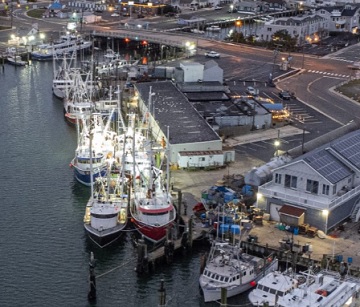
N.J., N.E., to Consider Fund to Compensate Fishermen for Revenue Lost to Offshore Wind Development
New Jersey is one of nine states that will consider a plan to establish a fund that would compensate commercial fishermen for losses that could be sustained due to impending offshore wind development. The states – Maine, New Hampshire, Massachusetts, Rhode Island, Connecticut, New York, New Jersey, Maryland, and Virginia – on Monday released a Request for Information (RFI) aimed at receiving input from impacted members of the fishing industry, offshore wind developers, corporate and financial management entities, as well as interested members of the public, to inform efforts to establish a regional fisheries compensatory mitigation fund administrator. “Mark off the area and then compensate us,” commercial fisherman Jim Lovgren, of Point Pleasant, said at a meeting on the topic five years ago,,, Photos, >click to read< 07:38

Virginia Regulators to Consider Changes to Menhaden Fishing Regulations
Virginia regulators will consider changes to commercial menhaden fishing in the Chesapeake Bay following requests from recreational anglers to put an end to the fishery. The proposals follow repeated requests from the Virginia Saltwater Sportfishing Association to stop menhaden fishing in the Bay, including a petition of 11,000 signatures that was presented to the office of Republican Gov. Glenn Youngkin earlier this year. Reedville-based Omega Protein, the lone player in the Bay’s menhaden reduction fishery, which processes catches into fishmeal or fish oil, says the new regulations take away available fishing grounds that include uninhabited areas. Taking operations completely out of the Bay into less safe conditions in the ocean would ultimately force the company to stop operating. >click to read< 11:51
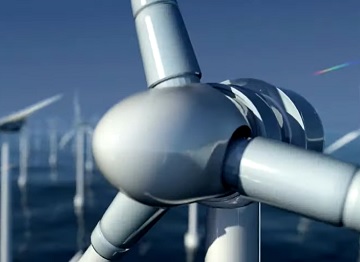
Feds: Whales Must Be Protected from Turbines
Soon after a group of opponents to proposed East Coast offshore wind projects hired a law firm with environmental regulation expertise, the federal Bureau of Ocean Energy Management (BOEM) announced a new plan to protect North Atlantic Right Whales and put it out for public comment. The opponents, with Thomas Jefferson Institute for Public Policy as part of the coalition, had been pointing to the impact of the project on the whales for months and this protection and mitigation plan admits the problem is significant. One apparent result of that will be a major delay in publication of the draft environmental impact statement (EIS) on Dominion Energy Virginia’s Coastal Virginia Offshore Wind (CVOW) project off Virginia Beach. >click to read< 09:48
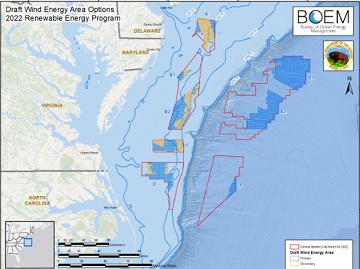
Public comment period opens on draft offshore wind areas
The federal Bureau of Ocean Energy Management on Wednesday announced that a 30-day public comment period has begun on eight draft offshore wind energy areas, including off the North Carolina coast. BOEM said it will hold virtual public meetings to engage the fishing community and environmental organizations to gather more information on the proposed areas and discuss next steps. The proposed areas cover about 1.7 million acres off North Carolina, Virginia, Maryland and Delaware. The distances to their closest points range from about 19 to 77 nautical miles offshore. >click to read< 08:10
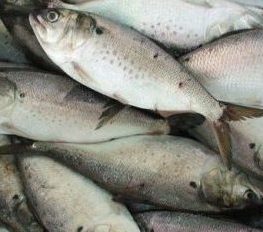
Bill introduced to ban controversial fishing method in Virginia
A bill has been introduced for the next session of the Virginia General Assembly to place a two year moratorium on Atlantic menhaden reduction fishing in Virginia’s portion of the Chesapeake Bay. State Delegate Tim Anderson is sponsoring the bill. Menhaden are a baitfish that serve as forage for a wide number of larger and sportfish species. The method of fishing has been criticized by sportfishing and conservation groups. Omega Protein operates a fishing fleet that targets menhaden. Critics say menhaden numbers have been driven down in the Chesapeake because of it, and that sportfish numbers have dropped as a result. Video, >click to read< -09:37

Panel hears debate on whether dead fish are pollutants
A Fourth Circuit panel heard arguments Tuesday over whether dead fish dumped back into the water by shrimping boats counts as pollution under the Clean Water Act. “You never know what you’re going to pull up fishing,” attorney Brian David Schmalzbach of McGuireWoods, who argued on behalf of shrimp fisheries, told the three-judge panel.,, And, your honors, contrary to the briefing from the appellees, this is right down the middle of the barrel of the Clean Water Act,” said attorney James L. Conner of Calhoun Bhella & Sechrest, who represents the North Carolina Coastal Fisheries Reform Group, at Tuesday’s hearing. “Are you still arguing that putting live fish back in the water is a pollutant?” Conner began to respond but Rushing interjected with a follow-up question. “You’re not arguing that live fish are a biological material? Only dead fish are a biological material?” she asked. >click to read< 20:00






